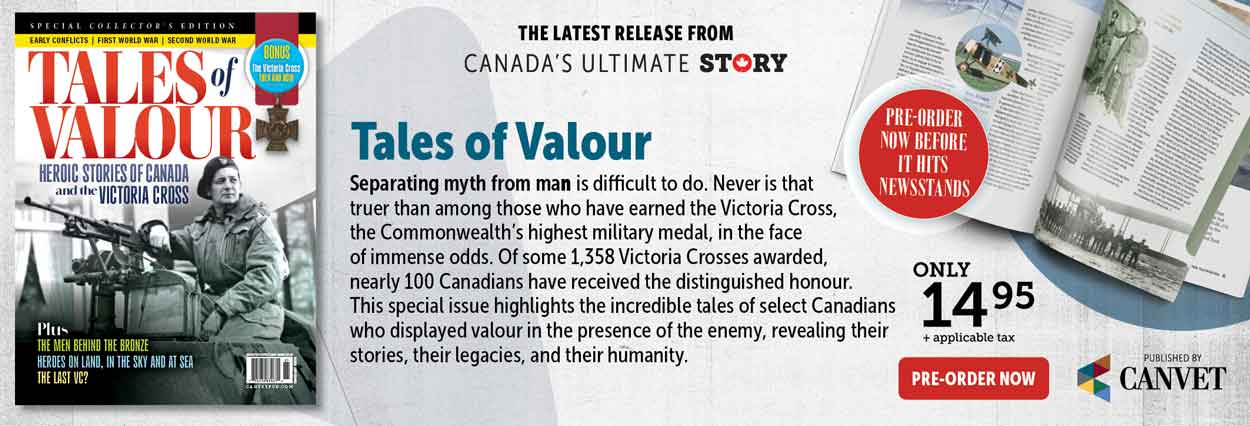Ten years from now the European Union and the North Atlantic Treaty Organization might look back at the Ukraine crisis as NATO’s third wake-up call. The first took place in early 1948 when Canada, Britain and the United States began secret talks in Washington aiming at creating a North Atlantic regional security pact aimed primarily at getting the Americans to use their military power, and particularly their nuclear capabilities, in the defence of Western Europe. That effort coincided with talks in Europe to create a military alliance to guard against Soviet expansionism. The Europeans alone did not have much deterrent power just four years after the end of the Second World War so their aim was also to secure U.S. guarantees against Soviet aggression.
![Ukrainian soldiers perform exercises at a military training ground outside Kyiv in March. [PHOTO: EFREM LUKATSKY, AP PHOTO]](https://legionmagazine.com/wp-content/uploads/2014/07/bercusson.jpg)
Canada was a key member of these talks that led to the establishment of NATO because Canadian land, sea and air space was vital for protection of North Atlantic shipping and for reasons rooted in Canada’s contributions to Allied victory in the Second World War. The NATO nations not only wanted to provide military assistance to European NATO members should they be attacked, but wanted to reassure European nations that Soviet military power would be countered by NATO military power, leaving small countries to pursue their own foreign and defence policies even though they might otherwise be intimidated by the U.S.S.R.
NATO’s second wake-up call came with 9/11 when, for the first time in its history it invoked Article V, the collective security clause of the NATO treaty, declaring that the attack on the United States was considered by NATO as an attack against NATO.
This past March, the rapid Russian annexation of the Crimea, followed by Russian intimidation of the Kyiv government in Ukraine and the sudden rise of armed pro-Russian separatist groups in eastern and southern Ukraine was the third wake-up call to NATO. At this writing (early May) there is little sign of how NATO will react to the newly resurgent Russian expansionism. But if NATO does not demonstrate strength and resolve, NATO’s putrefaction is only a matter of time.
Now, Ukraine is not a NATO country and NATO has no obligation to defend it. But former members of the Soviet empire such as the Baltic States, Poland, the Czech Republic and others are NATO members now, and nervous that they, too, will be threatened or intimidated by Russian irredentism. Here, NATO must draw a very firm line.
Vladimir Putin is not Josef Stalin, let alone Adolph Hitler. Russia in 2014 is not the U.S.S.R. at the height of its power. The current crisis is not the Cold War all over again. History does not repeat itself though it sometimes speaks in rhymes. But too many factors are very different today than they were at the start of the Cold War in the late 1940s.
Just to point to a single one, Russia is not isolated behind an all-encompassing Iron Curtain that marked not only a political and security barrier between power blocs, but a complete socio-economic and cultural barrier as well. Throughout the Cold War there was no talk of isolating and containing Russia because the Cold War was in itself a means of isolating and containing Russia.
When the Cold War ended, isolation and containment melted away. So the West–presumably some combination of the G-7, NATO and the EU–cannot simply build a wall around Russia now because, over the last quarter century, Russia and the global economy have become increasingly integrated. This does not mean that sanctions should not be applied to Russia to attempt to get Putin to change course, but it does mean that if the Cold War sanctions regime in place from the late 1940s to 1990 or so had only limited results, we can’t expect much more now.
No, what is needed is for NATO to rearm so that its deterrence re-emerges as a major factor in Russian calculations. And as NATO rearms, a far more effective means of utilizing NATO military power must be forged that will solve the many divisive issues that so hindered NATO in Afghanistan. We all know what those issues were, but the very nature of the alliance–which is that it is a very loose coalition at the political level, even within its EU components–hinders its military capabilities. There has been some talk of NATO reform in the last few years, but very little actual change.
The lesson that NATO ought to learn from Vladimir Putin’s adventurism in Ukraine is that military power is still the essence of diplomacy, even in the 21st century and that war, or the threat of war, is still the extension of politics by other means, to quote Carl von Clausewitz. Just because we believe that the 21st century has brought an era when great military powers no longer push smaller powers around, doesn’t mean that Putin–or others–believe it also.
Advertisement





















